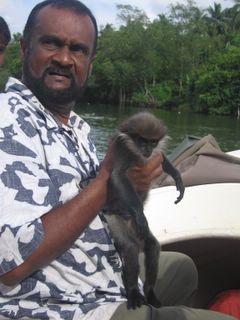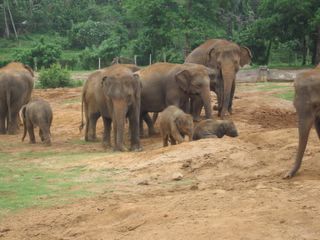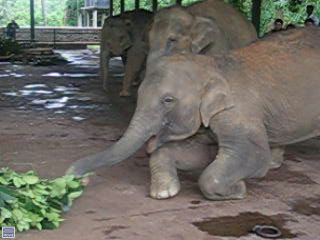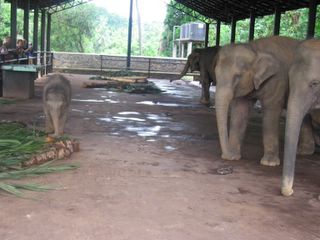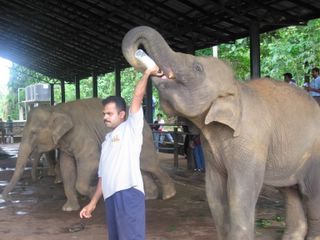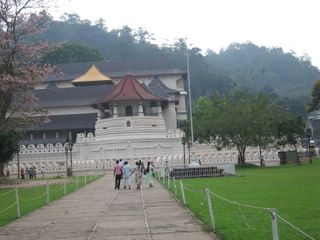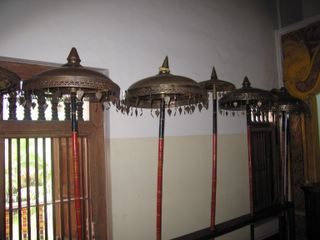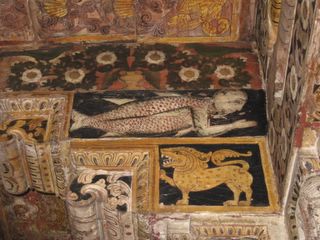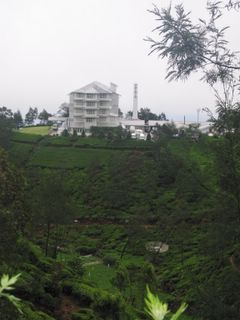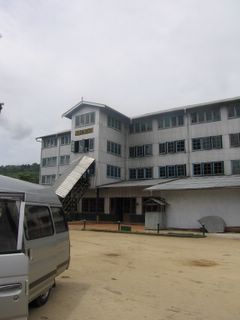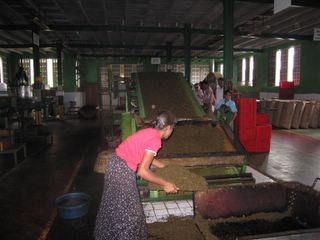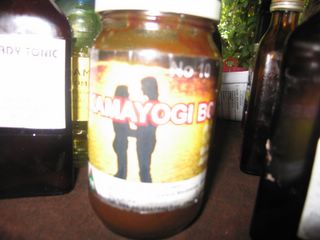A lovely new day, a cup of coffee and David comes in with the morning papers. Danny, the grocer next door who sets aside the International Herald Tribune, the Jerusalem Post and Haretz for us every morning, has warned us to stock up on bread because after tomorrow there won't be any for another week. Passover begins Saturday and tomorrow night is Shabbat.
Sounds a bit extreme, no bread for a week, but we can always pick it up in the Arab parts of town.
Then I start reading the papers. Seems our water changes for Passover too.
According to the Post, "Jerusalem's central water supply is switching over to kosher for Pessah [Passover] tap water." The paper (www.jpostcom) says the mayor asked the city water supplier to ensure there wouldn't be any leaven in the water during the holiday.
Jerusalem, just like the rest of Israel, depends on the Sea of Galilee for its water but for the next week we'll get water in this city from drilled wells.
Why? Well, it seems the Ultra Orthodox are worried that crumbs from fishermen and people having picnics by the Sea of Galilee would contaminate our water with leaven. Can't take that chance. So the pure water rolls in tonight and it also goes to the taps of the 230,000 Arabs who live in this city with the rest of us.
There's another great Passover story in the Post today and it's about gorillas in the Safari Park Zoo in Ramat Gan getting constipated on matza.
They won't get their normal breakfast of bread and cream cheese during Passover because their keepers can't touch leavened bread; instead they will get one or two matza a day. Any more and their digestive systems act up - that matza is just so binding.
My day is made. But the paper has more treats.
Did you know that there are about 40,000 little boys who work as jockeys in camel races in Quatar? Boys as young as four are routinely kidnapped or sold by their parents to camel owners in the Gulf states like Quatar and the United Arab Emirates.
Camel racing, controlled mostly by wealthy sheikhs, is a huge sport in these countries and rights groups are campaigning against the practice of using these kids as jockeys. So a Swiss businessman, Alexandre Kolot, working for a robotics company, has designed a 27-kilogram robot to take the place of children.
It's not only equipped with a global positioning system satellite beacon and shock absorbers, it's been spritzed with the same Arabic perfume riders use. The idea is to make the camels think their robotic passengers are their regular riders.
A driver racing along beside the camel (who can get it up to 40 km an hour) controls the robot with a laptop remote that has four commands: forwards, backwards, sideways and whip action.
Looks as if this might take off and the abuse of the children could end.
And finally, there is the story of the Israeli consul in the Hague who was arrested this week for planning to sell 150 passports. It's a nice little yarn about sex, money laundering and death threats.
It all makes a happy change from staring at Gomery headlines on the Internet.
On the Farm

Thursday, April 21, 2005
Sunday, April 17, 2005
A working holiday in Sri Lanka
My husband David, working with Bob Rae, has visited Sri Lanka many times in the last three years to assist in the effort to build a lasting peace in this beautiful and troubled country. They are there under the auspices of the Forum of Federations, an international organization based in Ottawa; Bob is the President of the Forum and David is a board member. This time their plan was to run a two-day seminar on federalism and hold meetings with officials but the trip developed into something more when they brought Arlene and me. We wanted to see the country, something Bob and David hadn't really done before as tourists. Their previous trips had been all business.
What an astonishing country it proved to be for all of us. The hotels were spectacular and beautifully run with some of the nicest people I have ever met making sure the rooms, the service and the food were perfect. Except for almost non-existent internet service at most places - probably just as well for a group of internet junkies - we couldn't have been happier.
Our guide and driver, Rex Samarawira, was the single person who made the trip work for us. He was erudite, funny, proud of his country's history, easy-going but at the same time a demanding slave-driver, flogging us along hot sandy temple paths in our bare feet and pushing us through two-hour walks in the steaming heat before we got our suppers. Rex educated us, entertained us, turned out to be a master magician, found us the best food in the country, the best shops, the best of everything. He's been at this for about forty years and he retains the enthusiasm of a beginner.
Everyone knows Rex and when you're with him the best seat in the house, the best table, the best view are yours. He packed his big, air-conditioned van with cold water and fruit; he stopped often for fresh treats, he explained every animal, bird, flower or bug we could find. Rex knew the wages of the tea pickers, their benefits, their troubles.
A devout Roman Catholic, Rex had great respect for the Buddhist sites we toured and I think he knew their histories as well as any of the monks.
Now when you travel a guide like this, and most people do, you wonder where they spend their nights. Rex explained that the hotels had guest houses for the drivers. It wasn't until the end of our trip that we discovered - on pressing him - the guest houses often had thirty men to a room. He wasn't complaining; it was just the way it was.
Arlene and I asked him, at the end of our tour, to take us to Galle - and you will see more about this towards the bottom of the Sri Lanka pictures. This trip was, in many ways, the one we will most remember. Rex brought his wonderful wife and we stopped to see the SOS Children's Village near the Samarawiras' house south of Colombo. Thanks to a suggestion from Michael Ondaatje, money from the World Literacy of Canada goes to these Sri Lankan branches of the SOS villages.
The four of us stayed in the same hotel in Galle; of course, Rex knows everyone and had arranged special dinners beforehand.
If any of you ever want to go to Sri Lanka - and I urge you, with all my heart to go - call Rex and he will make your trip one of the most memorable of your life. (E-mail me and I will send you phone number and e-mail address.)
This country desperately needs tourists. People have cancelled their trips since the tsunami and the country is reeling. It depends on tourists and we didn't go into one shop or one hotel or one restauarant where the message wasn't clear: please tell your friends to come.
For us, seeing Galle was more important than anything else we saw. We saw a gallant people struggling in the aftermath of tragedy and setting an example to the world of courage and dignity.
What an astonishing country it proved to be for all of us. The hotels were spectacular and beautifully run with some of the nicest people I have ever met making sure the rooms, the service and the food were perfect. Except for almost non-existent internet service at most places - probably just as well for a group of internet junkies - we couldn't have been happier.
Our guide and driver, Rex Samarawira, was the single person who made the trip work for us. He was erudite, funny, proud of his country's history, easy-going but at the same time a demanding slave-driver, flogging us along hot sandy temple paths in our bare feet and pushing us through two-hour walks in the steaming heat before we got our suppers. Rex educated us, entertained us, turned out to be a master magician, found us the best food in the country, the best shops, the best of everything. He's been at this for about forty years and he retains the enthusiasm of a beginner.
Everyone knows Rex and when you're with him the best seat in the house, the best table, the best view are yours. He packed his big, air-conditioned van with cold water and fruit; he stopped often for fresh treats, he explained every animal, bird, flower or bug we could find. Rex knew the wages of the tea pickers, their benefits, their troubles.
A devout Roman Catholic, Rex had great respect for the Buddhist sites we toured and I think he knew their histories as well as any of the monks.
Now when you travel a guide like this, and most people do, you wonder where they spend their nights. Rex explained that the hotels had guest houses for the drivers. It wasn't until the end of our trip that we discovered - on pressing him - the guest houses often had thirty men to a room. He wasn't complaining; it was just the way it was.
Arlene and I asked him, at the end of our tour, to take us to Galle - and you will see more about this towards the bottom of the Sri Lanka pictures. This trip was, in many ways, the one we will most remember. Rex brought his wonderful wife and we stopped to see the SOS Children's Village near the Samarawiras' house south of Colombo. Thanks to a suggestion from Michael Ondaatje, money from the World Literacy of Canada goes to these Sri Lankan branches of the SOS villages.
The four of us stayed in the same hotel in Galle; of course, Rex knows everyone and had arranged special dinners beforehand.
If any of you ever want to go to Sri Lanka - and I urge you, with all my heart to go - call Rex and he will make your trip one of the most memorable of your life. (E-mail me and I will send you phone number and e-mail address.)
This country desperately needs tourists. People have cancelled their trips since the tsunami and the country is reeling. It depends on tourists and we didn't go into one shop or one hotel or one restauarant where the message wasn't clear: please tell your friends to come.
For us, seeing Galle was more important than anything else we saw. We saw a gallant people struggling in the aftermath of tragedy and setting an example to the world of courage and dignity.
The Pinnewala Elephant Orphanage
The Temple of the Tooth in Kandy
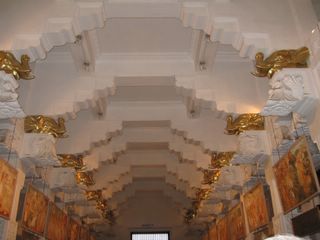
This is a ceiling in the famous Temple of the Tooth in Kandy, where the country's most revered Buddhist relic, the Buddha's tooth, is kept. (There is much speculation about its provenance.) Real tooth or not, the site is without question the most spectacular place we saw in the country. In 1998, Tamil terrorists blew up a major part of the temple so security remains very tight. And here again, we find more elephants holding up roofs

Tea plantations and tea pickers in the Hill Country

A tea-picker at the start of her day. Along with their wages, the pickers get rations of food each week: so much tea, flour, sugar and rice and they have a free room to live in with their families in what are called "lines" - a low row of modest buildings. They have electricity and many have television sets which receive one or two channels, but there is no running water and of course, no modern toilets. Drinking water comes from barrels. They do receive free health care and their children do go to school, but most leave after elementary school to go to work.


A worker in a tea factory. Most of the tea workers, inside the factories and out picking the leaves, are women; most are Tamils. Although the northern Tamils have been in Sri Lanka for centuries, most of those working on the tea plantations began arriving from India 150 years ago. It took many years before the government granted them citizenship; in fact some of their descendants only became citizens, with benefits, two years ago.


A tea picker in the hill country. These women must pluck enough of the top two leaves and tip from branches of tea plants to make 17 kilos of leaves a day and they carry the leaves in the bag hanging down their backs from their foreheads. For this they are paid about 200 rupees a day - $1.60 or so. They get a few rupees extra if they pick more.

An elephant safari, with diplomas to prove it
Subscribe to:
Comments (Atom)
